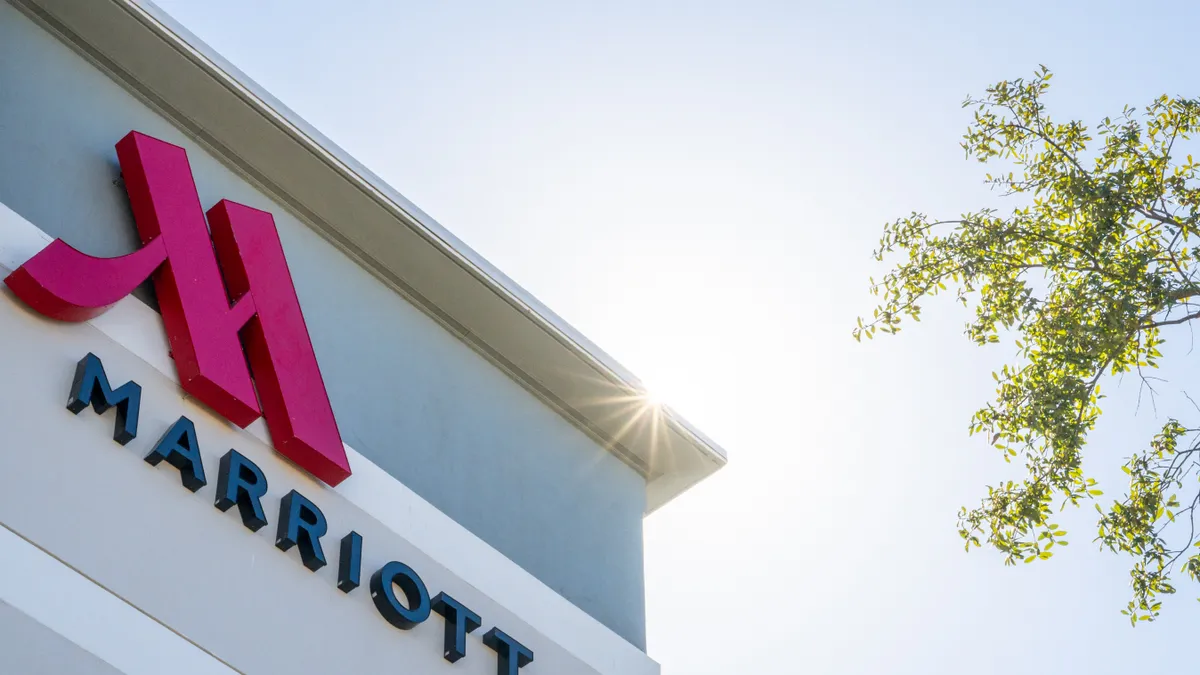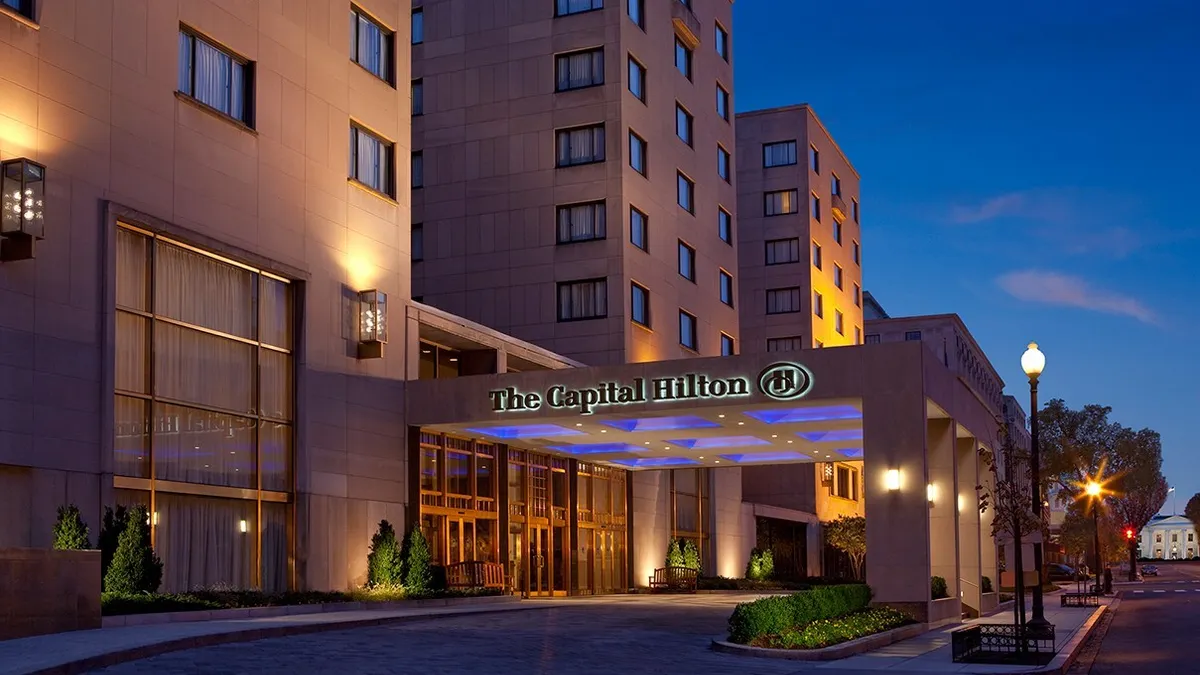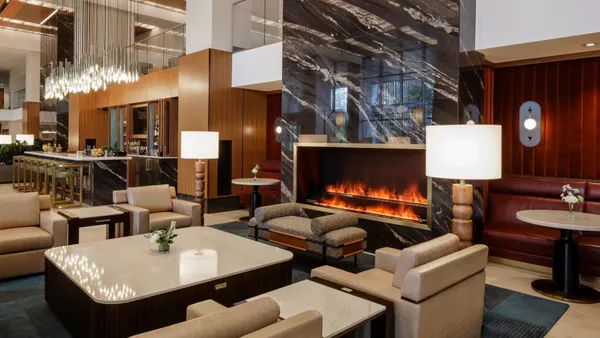Dive Brief:
- Marriott International posted 1.5% year-over-year growth in global RevPAR for the second quarter of 2025, representing 5.3% growth in international markets and flat performance in the U.S. and Canada amid heightened macroeconomic uncertainty in the region, according to an earnings report published Tuesday.
- Also during the quarter, the hotel company added roughly 17,300 rooms, growing its net rooms 4.7% year over year. The company’s development pipeline reached a record, exceeding 590,000 rooms, per the report.
- Despite gains on the development side, Marriott now anticipates full-year 2025 RevPAR growth at the low end of its prior guidance, CEO Anthony Capuano shared on a Tuesday earnings call. He attributed Marriott’s flat U.S. RevPAR results to a decline in select service demand, “largely reflecting reduced government travel and weaker business transient demand.”
Dive Insight:
Marriott now expects full-year 2025 RevPAR growth in the range of 1.5% and 2.5%, at the low end of its previously forecast growth range of 1.5% to 3.5%. This outlook comes as economic uncertainty persists following recent U.S. government actions, including trade policy shifts. Some uncertainty, though, has been eased after the One Big Beautiful Bill Act became law last month, Capuano noted on the earnings call.
“In some ways, the best thing about the Big Beautiful Bill is it’s done. The level of uncertainty, both among consumers and among our owners and franchisees, improves meaningfully with the signature on that bill,” Capuano said.
“The stability that comes from no more talk about it and the implementation of the various components of that bill are a net positive for us,” he continued. “With that said, the factors that our owners consider as they think about putting shovels in the ground are all around yields, and so to the extent that there remains uncertainty around tariffs, that will give them some measure of pause.”
Economic uncertainty negatively impacted Marriott’s results in the second quarter, according to Capuano. The company’s Q2 RevPAR growth in the U.S. and Canada was strongest in the luxury segment, though it “weakened going down the chain scales, where results came in below our prior expectations,” he shared on the call.
The company saw less-than-stellar results in the select service and extended stay segments, “primarily due to a decline in government demand, as two-thirds of [Marriott’s] government revenues are in the select service segment,” Capuano said.
Marriott CFO Leeny Oberg, who announced during the quarter that she will retire in 2026, said that government room nights in the U.S. and Canada were down 16% year over year in Q2.
Group RevPAR in the U.S. and Canada was also “softer than previously anticipated, primarily due to fewer near-term bookings and elevated attrition rates,” according to Capuano.
Caesars Entertainment CEO Tom Reeg similarly noted during a Q2 earnings call that the operator saw its Las Vegas segment booking window contract in Q2, resulting in softer earnings results.
Meanwhile, in June, CoStar and Tourism Economics downgraded their 2025 and 2026 growth projections for U.S. hotel top-line performance metrics, including RevPAR, citing elevated macroeconomic concerns.
For Marriott, group bookings for future periods have strengthened, though, “with group revenues for 2026 pacing up 8% in the U.S. and Canada,” Oberg shared.
Capuano also said he remains optimistic about growth on the development front.
“We still expect strong net rooms growth in 2025 and beyond, as owners continue to show preference for our brands, even with higher construction costs and the challenging financing environment in the U.S. and Europe,” he said.
Growth is expected to be driven in part by Marriott’s two new brands: its recently launched collection brand, Series by Marriott, and its recently acquired lifestyle brand, CitizenM.










